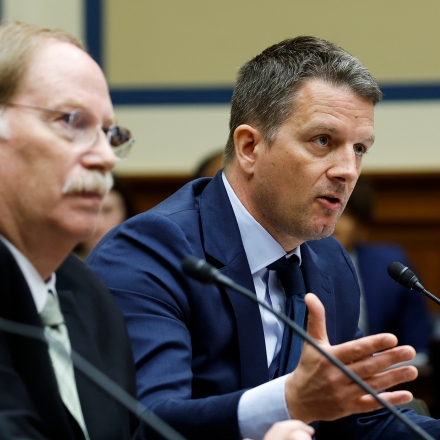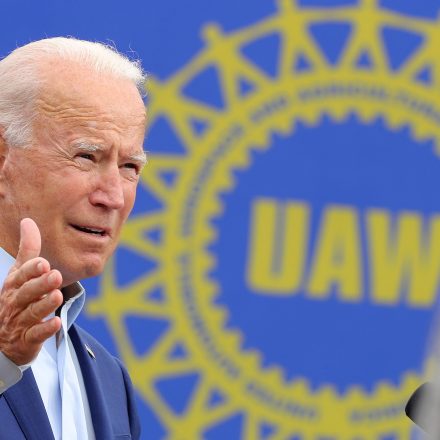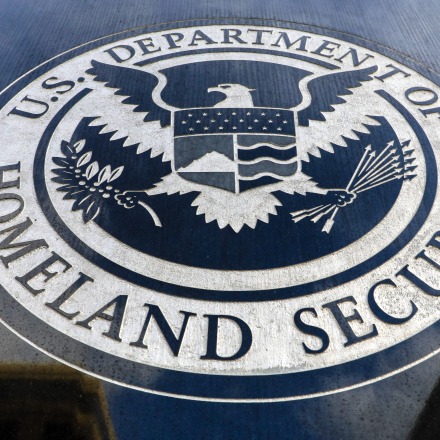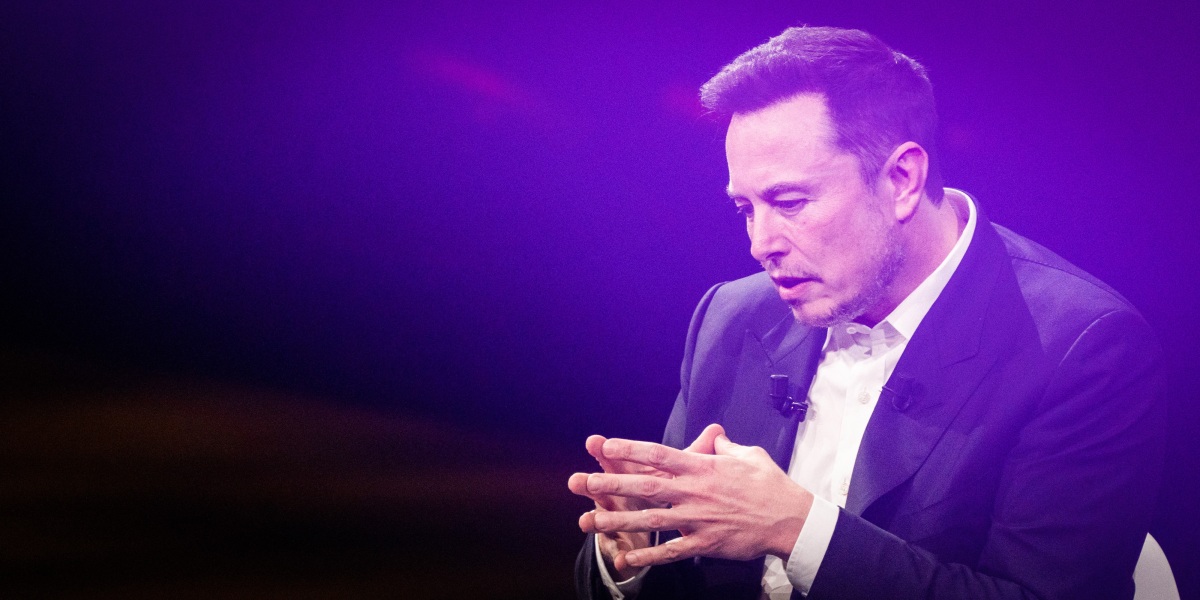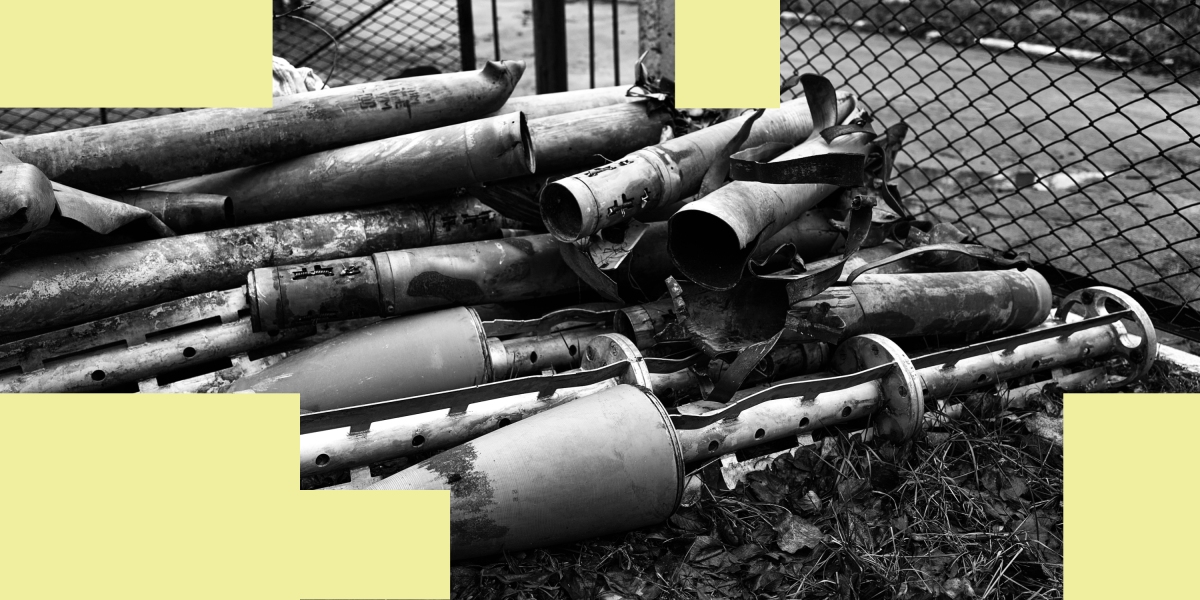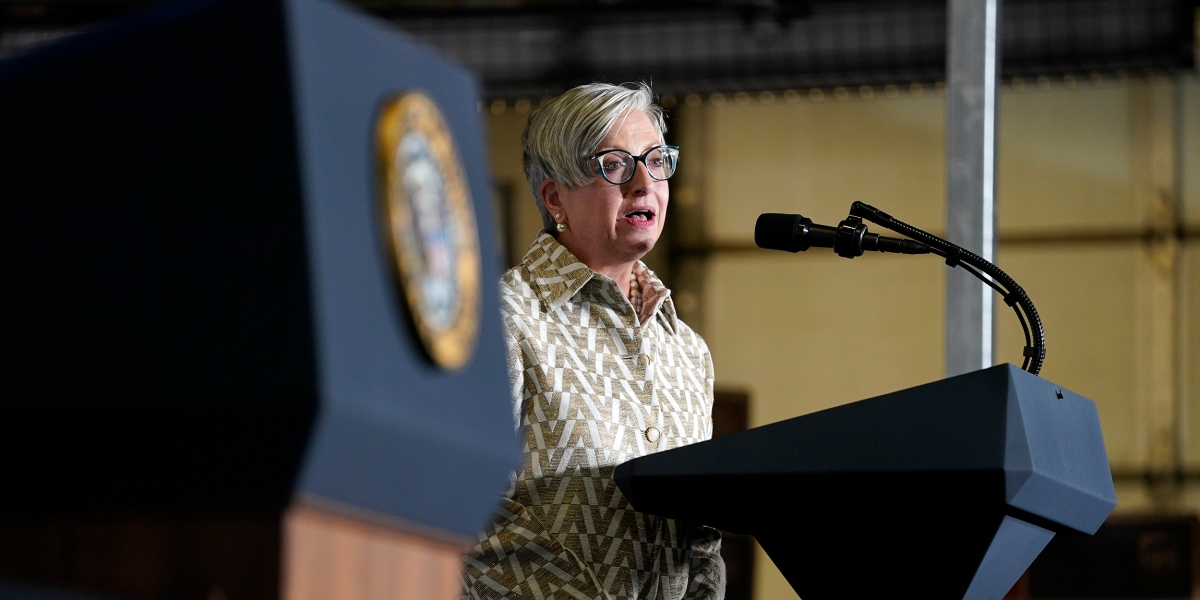
Former President Donald Trump speaks at a campaign rally at Dayton International Airport on Nov. 7, 2022, in Vandalia, Ohio.
Photo by Drew Angerer/Getty Images
Since Donald Trump left the White House, he’s been developing some new material that reached its apogee in a speech he delivered soon after his indictment for mishandling classified documents. Take a listen to this part, as the former president of the United States — and current frontrunner for the 2024 GOP nomination — tells us that “at the end of the day, either the Communists destroy America, or we destroy the Communists.”
At another point in the same speech, Trump proclaimed, “This is the final battle. With you at my side … we will drive out the globalists, we will cast out the communists.”
He’s made similar remarks on many occasions. Here he is haranguing us about the Marxists and communists:

Screenshot: The Intercept
Last November he was musing about how “the problem we have is that we are headed toward communism. … There’s never been a period of time like that in our country’s history. And that’s the way communism starts. And we can’t let it happen.”
This fixation on “communism” has also been seeping into the right at large. Florida Gov. Ron DeSantis, Trump’s fellow Republican presidential candidate, recently signed a law designating November 7 as “Victims of Communism Day.” The point, he said, was “to ensure that history does not repeat itself.”
For its part, the Heritage Foundation, a conservative think tank that was once staid and corporate, is frothing at the mouth. In a recent report, it explained that “many Americans and others around the globe justifiably believed that communism had been defeated,” but “cultural Marxism today presents a far more serious and existential threat to the United States than did Soviet communism.” You might have thought it was bad when Russia had 45,000 nuclear weapons, but that was but a mere bagatelle compared to pronouns in Twitter bios.
The ranty, shouty, red-faced rage of this has made my brain feel itchy indeed. Just a few days ago, I was compelled to open up several cardboard boxes of my late grandfather’s keepsakes. Past the plaque from the University of Illinois Ma-Wan-Da Honor Society, past a crumbly notebook of clippings of his coverage of the aeronautics industry in the Chicago Daily News, past a photograph of him and my grandmother petting a lion on a carefully mown Hollywood lawn, past a teacup emblazoned with the Nazi eagle and swastika that he brought home from World War II, I found what I was looking for: the May 2, 1945, Paris edition of Stars and Stripes.
The headline understandably takes up half the front page: “HITLER DEAD.”

Photo: Jon Schwarz
Every aspect of this historical artifact is compelling to me. It cost one franc. It’s the Paris edition because my grandfather, then a U.S. Army captain, was there, where he’d been assigned to run the 19th arrondissement. This job consisted of trying to find whoever was in charge of the 19th arrondissement before the war and urging them to be in charge again.
Almost every story describes mass human slaughter. “1,500 Japs Die in Fierce Fight Outside Shuri.” There’s the firebombing of Hamamatsu, “in which not a Superfort was lost.” Also, Benito Mussolini was “buried nude” in a potter’s grave. But then there’s page seven with the comics, including Dick Tracy, Blondie, Joe Palooka, Li’l Abner, and Abbie an’ Slats. There’s even a tiny lost and found section, which, in the midst of World War II, speaks of a truly optimistic spirit.
But I was searching for it to read the story about Adolf Hitler again, specifically the words of Karl Dönitz. Dönitz was a German admiral who became leader of the Reich after Hitler shot himself on his sofa. Stars and Stripes reports that Dönitz said this in a radio broadcast to his countrymen:
My first task is to save the German people from destruction by Bolshevism. …
Adolf Hitler recognized beforehand the terrible danger of Bolshevism and devoted his life to fighting it. …
His battle against the Bolshevik flood benefited not only Europe but the whole world. …
The British and Americans do not fight for the interest of their own people but for the spreading of Bolshevism.
Then Stars and Stripes dismisses this in a single sentence fragment with a pair of scare quotes. Dönitz, it tells us, was “harping on Hitler’s old theme of the Red ‘menace.’”

Photo: Jon Schwarz
There were three things that struck me about this. First, there’s the useful reminder of the central place of communism in the Nazi cosmology. They weren’t embroiled in a titanic battle against a simple Jewish conspiracy but rather a more complex Jewish-Bolshevik conspiracy. Sometimes there was even more to it, and they spoke of an international Judeo-Masonic-Communist enemy. And obviously this wasn’t just Hitler, as Dönitz demonstrated with his post-Hitler soliloquy. An obsession with the towering communist threat was absolutely central for Nazi motivational speakers.
Second, there’s the casualness with which Stars and Stripes brushed Dönitz’s words aside. In 1945, American liberalism was at the heights of its popularity and confidence, confidence and popularity that it would never again match. This wasn’t in the Liberal New York Times or the Liberal Washington Post, but in Stars and Stripes. We’ve heard all of this jabbering before, it says in a tone of boredom, and we don’t need to waste any time on it.
The third thing was what sent me hunting for the paper in the first place: how, in 1945, Dönitz sounded exactly the same as the leaders of the Republican Party today. Here’s what Trump recently said again:
“At the end of the day, either the Communists destroy America, or we destroy the Communists.”
And here are more of Dönitz’s words:
“It is my first task to save the German people from destruction by the Bolsheviks.”
It’s tough to know how exactly to feel about this. It may be the case that ultra-right wing political rhetoric always reaches this destination, but only occasionally explodes in a farrago of mass murder.
Obviously it’s also true that ferocious anti-communism was the organizing principle of U.S. foreign and (partly) domestic policy from the late 1940s to the dissolution of the Soviet Union in 1991. And during the period of the Red Scare, there was a great deal of right-wing bloviation about communism indistinguishable from that of today.
However, after the fading of McCarthyism, the frequency and intensity of this kind of language faded too, at least in the heights of the political system. One of Dwight Eisenhower’s aides spoke of how he should model “vigilance without fanaticism” about communism. U.S. policy remained reactionary. But rarely did top figures erupt with the fury and venom that we see today, especially directed toward other Americans.
In addition, the U.S. right has always been controlled by corporate America. And while our most advanced businesspeople have sometimes been fascism-curious, they’ve usually drawn the lines at death camps, perhaps because they don’t want to kill off too many customers. Most importantly, Nazism seems to require lots of energy, and I personally suspect America is now too old and fat for it. You can’t have effective torch-lit rallies when all the attendees need mobility scooters.
And yet — as I look at this soft, dusty newsprint, currently two inches from my elbow, I feel someone walking over my grave. Something truly unwholesome is growing on the U.S. right, a story that they’re telling themselves, a slow accretion of fantasies that is giving them permission to do something. It makes me feel that this newspaper has traveled across the Atlantic Ocean, though uncounted attics, and across 78 years of time, to say something to us. What I hear is that the humans of 1945 were exactly the same kind of creatures as we are today, and we should understand that as though our lives depend on it.
